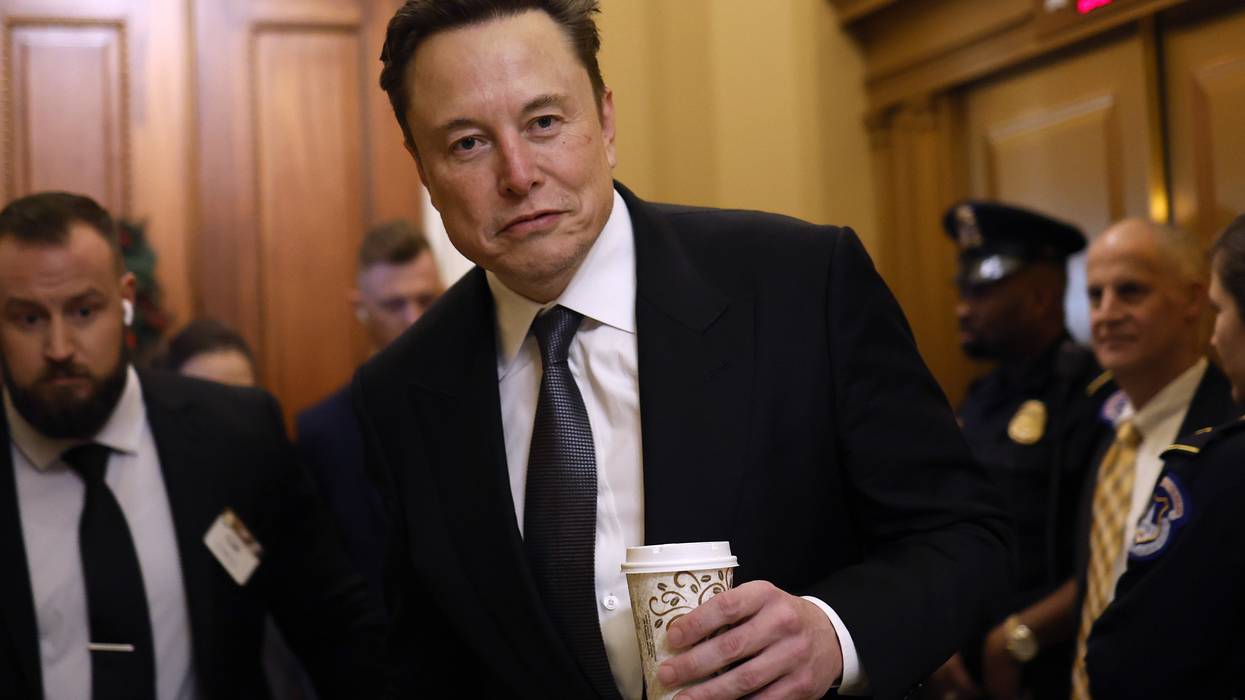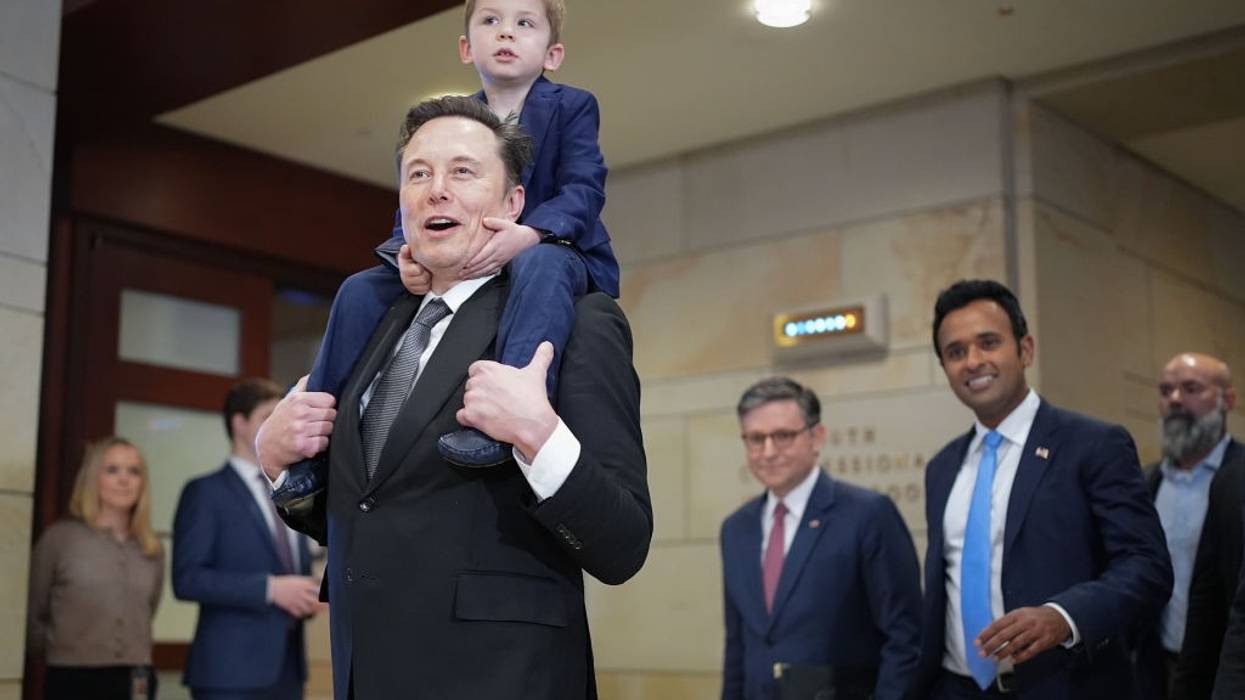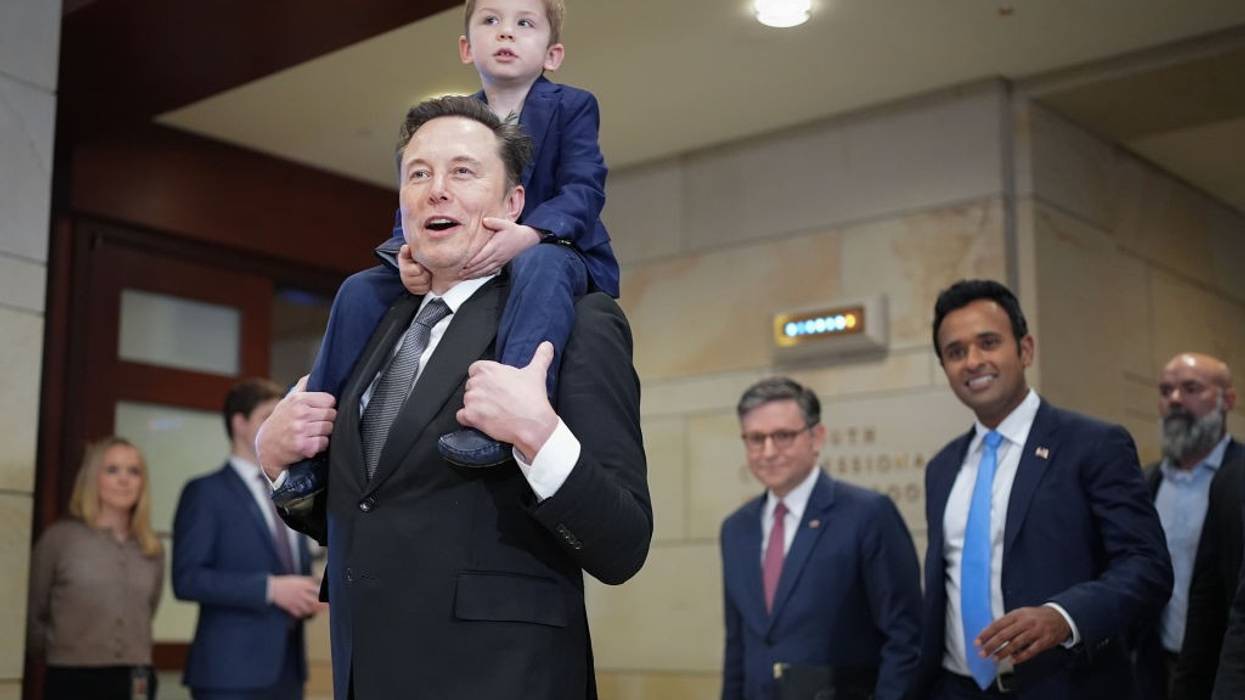Watchdogs, Unions Target DOGE With Lawsuits Mere Minutes Into Trump Administration
"This fight is about fairness, accountability, and the integrity of our government," said AFGE national president Everett Kelley.
The legal fight over President Donald Trump's "Department of Government Efficiency" kicked off less than hour into his presidency with a flurry of lawsuits filed in federal court—including multiple that allege the body is in violation of the the 1972 Federal Advisory Committee Act.
Trump tapped billionaire and Tesla CEO Elon Musk and tech entrepreneur Vivek Ramaswamy to run the Department of Government Efficiency (DOGE), which was conceived by Trump to help aid with cuts to government spending and regulation. (Ramaswamy, however, is reportedly departing DOGE to launch a bid for Ohio governor).
In a Monday statement announcing one of the lawsuits, Skye Perryman, CEO of Democracy Forward, said that "allowing unelected billionaires to run roughshod over essential services without being transparent about their operations does not achieve the efficiency the American people want to see from their government and only threatens to further undermine the public's trust."
Democracy Forward is serving as co-legal counsel in one of three lawsuits alleging Federal Advisory Committee Act violations. That complaint was filed by a diverse group of plaintiffs, including the advocacy organization the American Public Health Association, the union the American Federation of Teachers, the veterans group the Minority Veterans of America, the progressive veterans group VoteVets Action Fund, the consumer advocacy group the Center for Auto Safety, and the watchdog group Citizens for Responsibility and Ethics in Washington (CREW).
A second was filed by the watchdog group Public Citizen, the watchdog nonprofit State Democracy Defenders Fund, and the federal employees union the American Federation of Government Employees (AFGE). A third was filed by the public interest firm the National Security Counselors.
"This fight is about fairness, accountability, and the integrity of our government," said AFGE national president Everett Kelley in a statement Monday. "Federal employees are not the problem—they are the solution. They deserve to have their voices heard in decisions that affect their work, their agencies, and the public they serve."
Plaintiffs in the first three suits argue that DOGE is operating as a federal advisory committee but not adhering to regulations overseeing those bodies.
Under the 1972 law, federal advisory committees—bodies that advise federal decision-makers on policy, which are also known as FACAs—must do things like furnish meeting minutes and make their meetings open to the public. The groups must also establish a charter and ensure the viewpoints of its members are "fairly balanced."
According to the complaint co-authored by lawyers with Democracy Forward and CREW, the defendants—who include DOGE and the Office of Management and Budget—"have taken no action to comply with FACA, including by making a formal determination that DOGE's creation serves the public interest, nor have they filed a charter identifying the scope of DOGE’s work."
The lawsuit also alleges that "DOGE's membership does not include anyone who brings the perspective of the people and communities that will be most directly affected by the drastic cuts to the federal programs and services that DOGE will recommend."
The complaint co-authored by Public Citizen also makes the same argument regarding balanced viewpoints. Each of the plaintiffs listed in that suit appealed to have representatives from their respective groups join DOGE in order to offer expertise, according to the filing.
" Elon Musk and Vivek Ramaswamy both hold financial interests that will be directly affected by federal budgetary policies—presenting substantial conflict of interest concerns," said Lisa Gilbert, co-president of Public Citizen, in an early January statement regarding her request to join DOGE.
Two of Musk's companies account for at least $15.4 billion in government contracts over the past 10 years, according to New York Times reporting from October. Ramaswamy's perch atop DOGE could also present conflicts of interest stemming from financial interests he has in multiple companies with exposure to the federal government, the Times reported before revelations of his plans to leave DOGE.
Also Monday, the conservation organization the Center for Biological Diversity sued to obtain public records showing how "people claiming to represent DOGE" have communicated with the White House since the presidential transition began.
In t complaint, the Center for Biological Diversity argues that they filed an unfilled public records request with the Office of Management and Budget for materials that would "shed valuable light on any directives or communications with OMB regarding DOGE and its objectives, which will shed light on the new administration's intended operations and responses as they take office."
"Whether it's Trump or Elon Musk who's really running the government, we're a nation of laws and the people have a right to know what Musk and his cronies have been up to during the transition," said Kierán Suckling, executive director of the Center for Biological Diversity, in a statement Monday.


